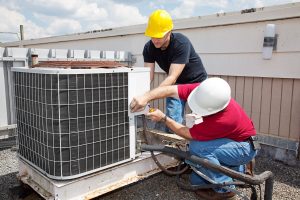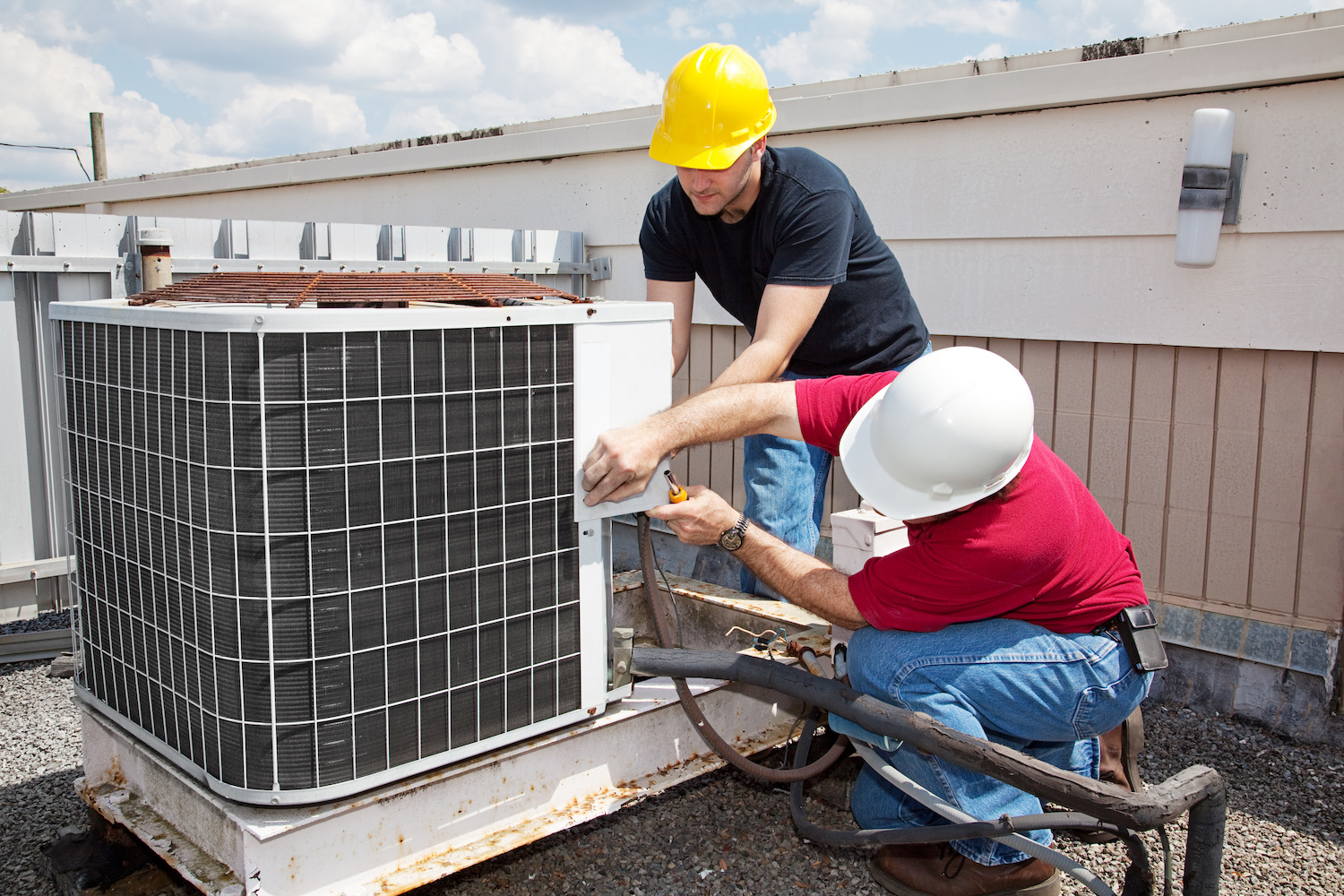
Air conditioning was invented in the early 1900s, and—boy oh boy—have we come to depend on it since then. Gone are the days of sweating or shivering while inside a building. Now, if we are too hot or too cold, we’ll simply adjust the thermostat or find a place that is more comfortable.
Considering how accustomed we have become to this modern comfort, it is of the utmost importance to have your HVAC system working properly. The best way to ensure that it will work efficiently during the hottest and coldest days is to have regular maintenance from a professional HVAC technician.
These technicians will help keep your HVAC system running at its peak efficiency. Over time, components can become dirty or worn, reducing their efficiency and making the system work harder to maintain the desired temperature. Routine maintenance, including cleaning, lubrication, and calibration, ensures that your HVAC system operates efficiently, saving energy and reducing utility costs.
Proper maintenance can also extend the lifespan of your HVAC system, which more than justifies the cost of routine repairs. By addressing any issues early on and ensuring proper operation, you can avoid major system failures, saving you from the cost of early replacement and untimely breakdown. Along with the cost of the system replacement, the last thing you want is to say “our air conditioner isn’t working right now” to potential customers who are walking in the door. Most likely, they’ll just turn around and go to the restaurant down the street.
Along with keeping everyone comfortable, HVAC systems also play a vital role in maintaining indoor air quality. Over time, though, dust, allergens, and pollutants can accumulate in the system, which, if not addressed, can be circulated throughout your establishment. Regular maintenance will solve this problem, ensuring that the air circulating in your restaurant is clean and healthy for both staff and customers.
Another safety concern is that HVAC systems involve electrical components, gas lines, and combustion processes in the case of furnaces. Regular maintenance ensures that all safety mechanisms, such as flame sensors, gas valves, and electrical connections, are functioning correctly. It helps detect any potential hazards or malfunctions, reducing the risk of fire, gas leaks, or electrical issues that could endanger your staff and customers.
A bonus of regular maintenance is that it can ensure that the HVAC warranty remains valid. Many systems come with manufacturer warranties, but failing to perform regular maintenance as per the manufacturer’s guidelines can void the warranty, leaving you responsible for the costs of any repairs or replacements. Along with keeping the system’s warranty, regular maintenance could also help to avoid potential penalties or legal issues since some regions have regulations which require regular maintenance of HVAC systems.
With all the potential downsides to not regularly servicing your HVAC system, you’ll be much better off to go ahead and schedule maintenance. A good rule of thumb is to have your HVAC system checked out twice a year—once in the fall before it’s time to use the heater and once in the spring before the summer heat rolls in.
If you want a professional opinion on how to lower your HVAC expenses and energy consumption, reach out to us today! Here at GWT2Energy, we can put together an individualized plan for helping your restaurant be even more efficient and successful.




